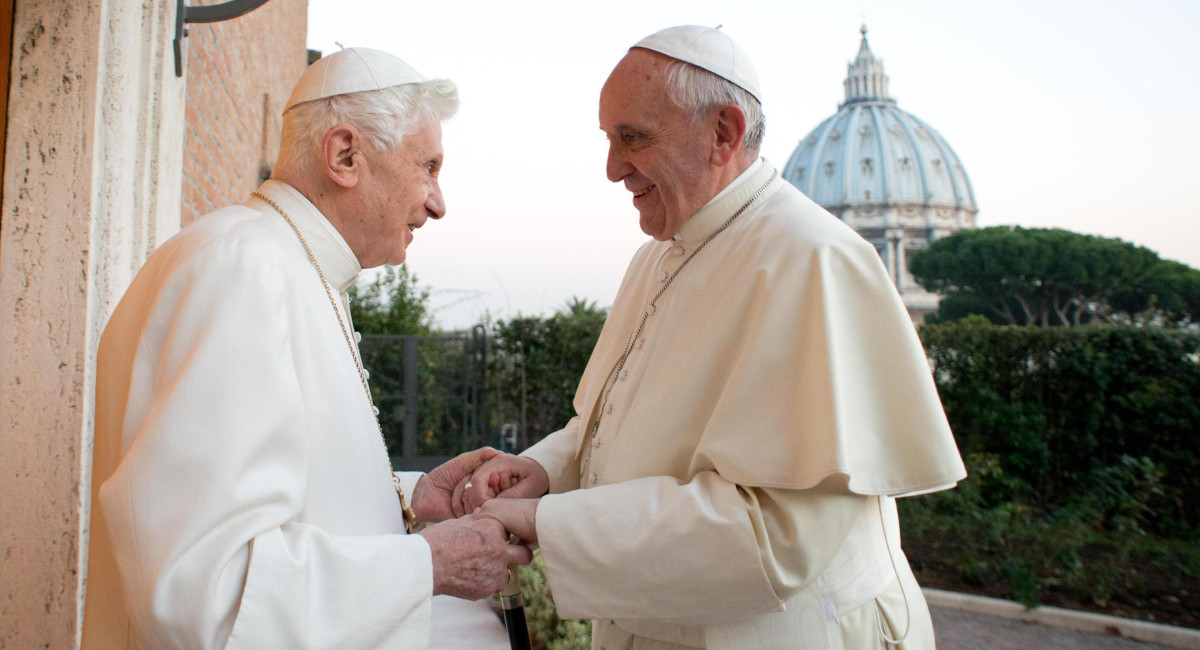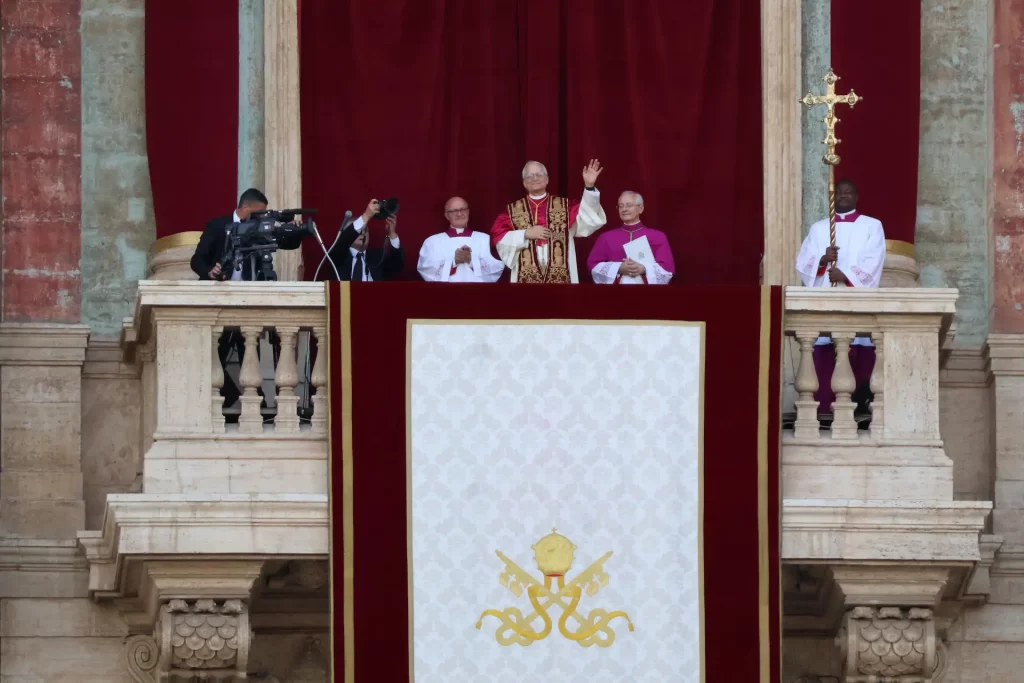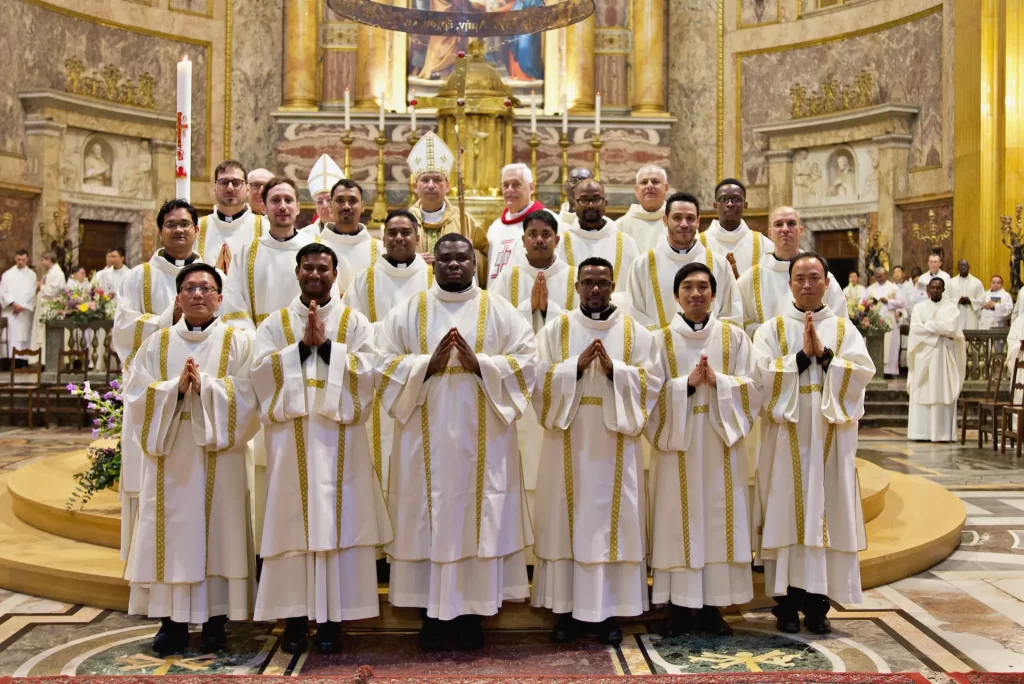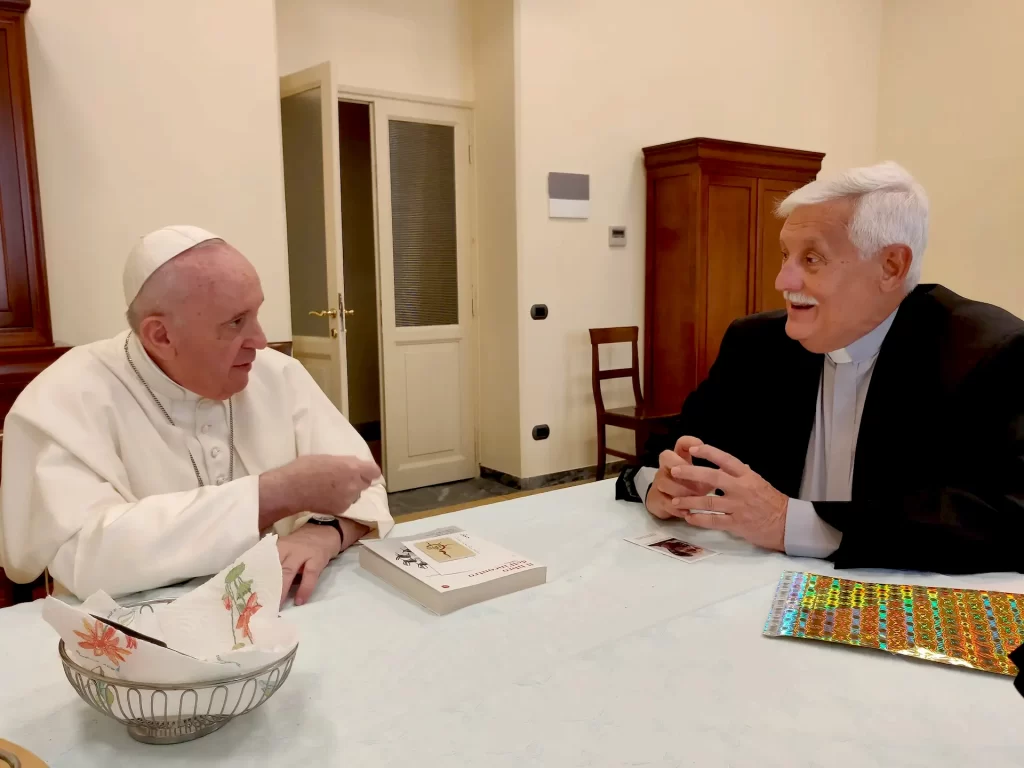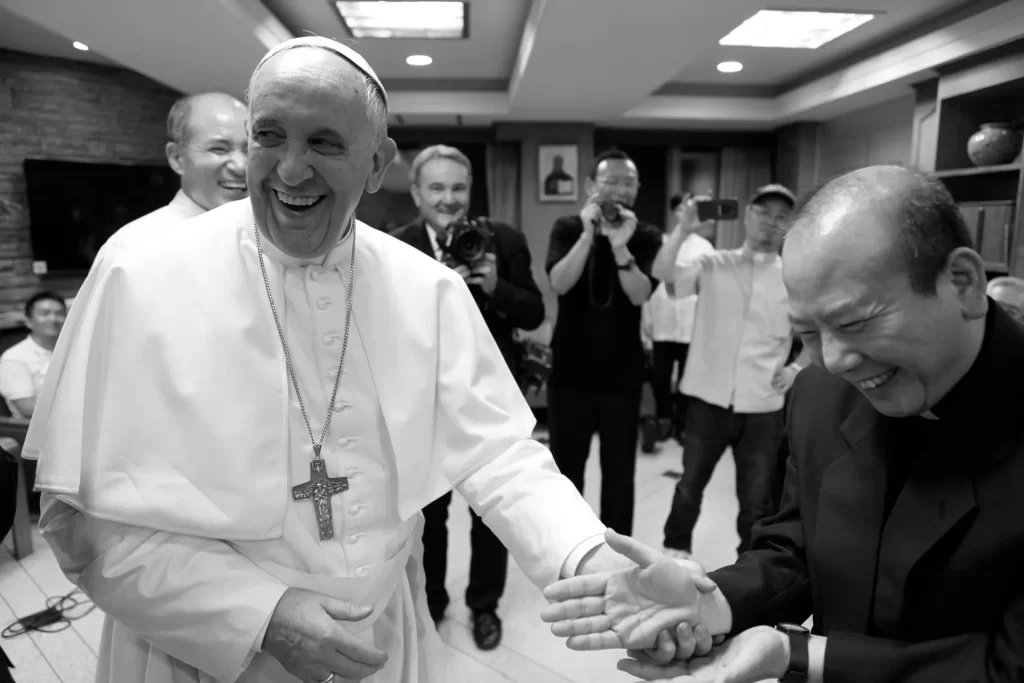Pope Emeritus Benedict XVI, who was head of the Catholic Church from 2005 to 2013, has died at the age of 95 on 31 December in his home at the Mater Ecclesiae Monastery in the Vatican Gardens in Vatican City.
Born Joseph Ratzinger on 16 April 1927, he grew up in the turbulent years of the Second World War. He remembered seeing his parish priest being beaten by Nazis before celebrating Holy Mass, and was well aware of the fiercely hostile atmosphere to the Catholic Church that existed in Germany at the time. In 1943, while still in seminary, he was enrolled in the auxiliary anti-aircraft service. He deserted the army in 1945 with his brother Georg to rejoin the seminary.
Ratzinger was ordained a priest on 29 June 1951 in his native Bavaria. On 19 April 2005, at the age of 78, he was elected Pope, following the death of Pope John Paul II, and became the 264th successor to St Peter. He chose the name Benedict XVI in honour of Benedict XV, who was pope during the First World War and passionately pursued peace between the warring nations, and Benedict of Nursia, a fifth-century monk who had founded monasteries that spread Christianity in Europe.
On 11 February 2013, Benedict announced his decision to resign as pontiff in a speech in Latin before the cardinals, citing advanced age. His resignation took effect on 28 February 2013, making him the first pope in almost 600 years to step down.
Prior to his election as pope, he was the archbishop of Munich and Freising in 1977, the same year he became a cardinal. At the time of his election, he had been the Prefect of the Congregation for the Doctrine of the Faith, an office which he headed for nearly 25 years, and was Dean of the College of Cardinals.
During his nearly eight-year pontificate, Benedict canonised 45 people, including Chilean Jesuit priest Alberto Hurtado and French Jesuit priest Jacques Berthieu. He wrote three encyclicals, Deus caritas est (God is Love), Spe Salvi (Saved by Hope), and Caritas in veritate (Love in Truth). Upon his resignation, he had completed the draft of his fourth encyclical, Lumen fidei (The Light of Faith), which was intended as a complement to his first two encyclicals to complete a trilogy on the three theological virtues of faith, hope, and love. Pope Francis, who succeeded Benedict, completed and published Lumen Fidei in June 2013.
A revered theologian and a prolific author, Benedict was a defender of traditional Catholic doctrine and values, and of their importance in the survival of Western civilisation. He taught about the importance for the Catholic Church and for humanity of contemplating God’s salvific love and reaffirmed the “importance of prayer in the face of the activism and the growing secularism of many Christians engaged in charitable work”. At the same time, he advocated environmental protection and criticised capitalism, notably during the financial crisis of 2008.
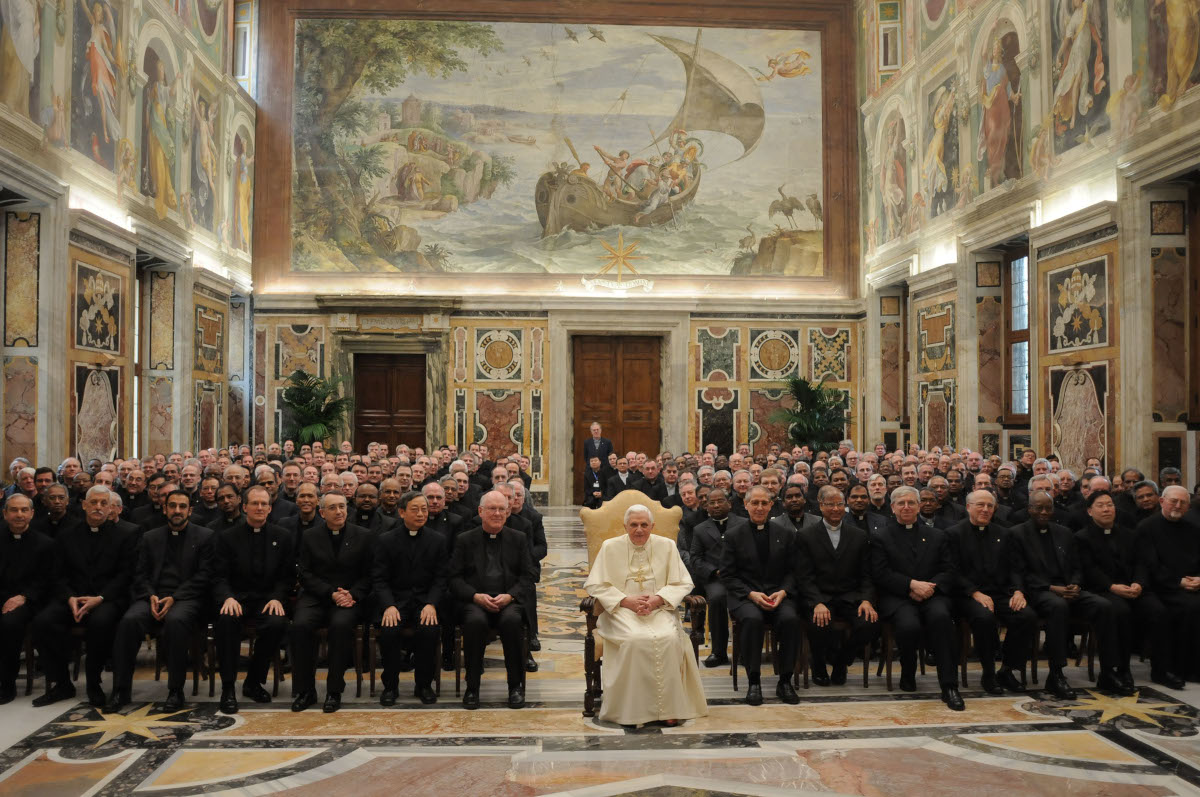
Pope Benedict XVI receives in Audience the delegates of General Congregation 35 | 21 February 2008
In his letter to the whole Society of Jesus, Fr General Arturo Sosa SJ recognised how Benedict XVI faced the difficult challenges of his pontificate “with humility, courage and constancy, giving guidance and example to the whole Church”. Fr Sosa cited in particular “the dramatic and painful reality of sexual abuse by priests and religious, from which we ourselves, unfortunately, are not exempt”.
“The way in which Benedict XVI took on himself the weight and consequences of this unspeakable sin of the Church has set us on the right path: becoming aware of this painful reality, listening to the victims, doing justice in each case, seeking ways to repair the harm that has been done, and taking steps to prevent the repetition of such failures,” Fr General Sosa said.
He added that Benedict’s resignation from the papacy was “a brilliant lesson in humility and spiritual freedom. It showed his desire to put the good of the universal Church before everything else.”
Fr Sosa also noted how the Pope Emeritus “knew well the strengths and limitations of the Society of Jesus” in his encounters with “many Jesuits committed to theological, biblical, philosophical, and canonical reflection” and his knowledge and appreciation of Ignatian spirituality. Benedict’s favourite prayer was St Ignatius’ Sume, Domine, et suscipe. While “second of his favourite prayers,” said the Father General “is attributed to St Francis Xavier: ‘I love you because you are my God […]. I love you because you are you.’”
In 2008, Benedict XVI received the delegates of General Congregation 35, which elected Fr Adolfo Nicolás SJ as Superior General. Fr Sosa recalled the address that Benedict gave to them, which “led us to the heart of our spiritual identity and encouraged us to live, with determination and enthusiasm, the multi-dimensional mission characteristic of the Society: at the service of faith, justice, and culture, among and with the poor, thinking with the Church and in the Church, with that ‘effective and affective’ devotion that makes Jesuits ‘precious and irreplaceable collaborators’ of the Vicar of Christ”.
Benedict rarely made public appearances in recent years as he grew increasingly frail. In a rare letter published in 2018 in the Italian newspaper Corriere della Sera, Benedict wrote in response to those wondering how he was: “I can only say that in the slow waning of my physical forces, inwardly I am on a pilgrimage toward Home.”
At his 95th birthday in April, his longtime personal secretary Archbishop Georg Gänswein said Benedict was in “good spirits”, adding that the retired pope was “of course physically relatively weak and frail, but lucid”.
On Wednesday, 28 December, Pope Francis appealed to his general audience at the Vatican to pray for Benedict, whom he said was “very ill”.
Benedict’s funeral is scheduled to take place on Thursday, 5 January, in St Peter’s Square to be presided over by Pope Francis. It is an unprecedented event that a sitting pope will preside over the funeral of a former pope.
This article was updated on 2 January.

